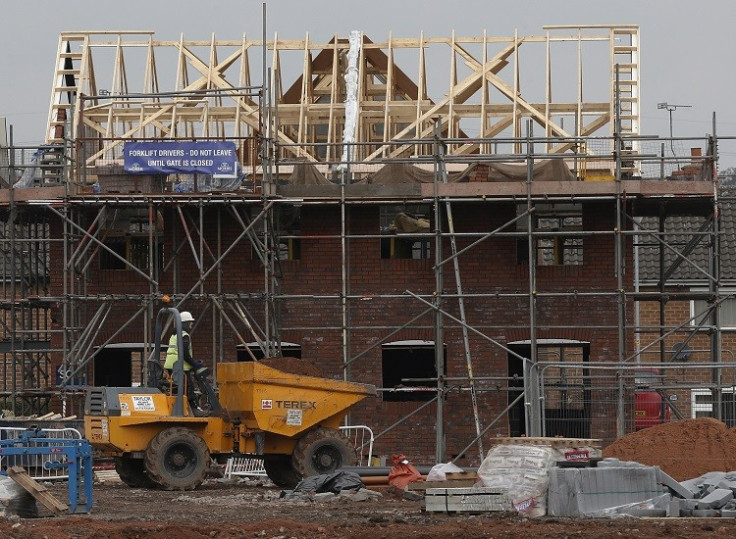New home registrations in London tumbled ahead of the EU referendum, says NHBC
NHBC says across for the whole of the UK new home registrations are solid, but some regions saw declines

There has been a steep drop in the number of new homes registered in London, an ominous sign that the city's housing crisis may get worse. NHBC, an insurer which provides warranty on 80% of new homes built in the UK, said registrations fell 29% year-on-year in the second quarter of 2016 as the EU referendum loomed.
Developers register new homes before construction work begins, meaning registrations are a good lead indicator. Most registrations become homes. There were 4,982 registrations in London, down from 6,971 in the same period a year before.
The slump in London may be explained by uncertainty surrounding the 23 June referendum in which the UK voted for Brexit. London's housing market is expected to be hit hardest by the uncertainty surrounding Brexit. The Centre for Economics and Business Research (CEBR), a consultancy, forecasts London house prices to drop by 5.6% in 2017.
But there remains a fundamental undersupply of homes, driving up house prices and rents sharply in recent years and well ahead of the rest of the country. NHBC's registrations for the year to the end of the second quarter in London were 23,132. City Hall estimates the annual new housing need to be 50,000.
According to figures from the Office for National Statistics (ONS), the average UK house price shot up by 50% between 2005 and 2015. In London, the average house price leapt 90% across the same decade. As of May 2016, the average UK house price was £211,000. In London, it was £472,000, the highest of all regions.
For the whole of the UK, there was a 1% rise in new registrations with NHBC to 41,222, the best quarter since 2007. Over the year, there were 152,434. But the regions were split; out of 12, six recorded higher registrations.
"Our latest statistics show that the industry continues to consolidate on the strong growth in registrations seen over recent years," said NHBC chief executive Mike Quinton.
"These registrations reflect continued industry confidence in the run-up to the EU Referendum at the end of June. Indeed, this period was the strongest quarter since Q4 2007, albeit still some way off levels seen over a decade ago. NHBC remains fully committed to support the industry to build new homes to the highest possible standards."
Government figures show that there were 142,390 completions in England and Wales in 2015, a 20% annual rise, but well below the estimated 250,000 new homes a year needed just to meet demand. Ministers are targeting a million new homes by 2020.
Housebuilders are shrugging off Brexit concerns, insisting the fundamentals remain strong. There is a long-term undersupply of new homes, mortgage credit is cheap, and employment levels are high.
"All the measures we monitor, and we have been monitoring them over the past couple of weeks, haven't actually shown that there has been a drop off and things have remained pretty consistent with before the vote," Steve Turner, head of communications at the Home Builders Federation (HBF), which represents 80% of the housebuilding industry, told IBTimes UK previously.
"Year-on-year, we're looking stronger than we were last year. Whilst people have expected there to be a drop, the actual reality is there hasn't been a drop in terms of sales rates, reservations and the number of people visiting sites. The underlying demand for new homes remains. We've been under-supplying new homes for decades and as a result we've got an acute shortage of homes."
© Copyright IBTimes 2025. All rights reserved.






















